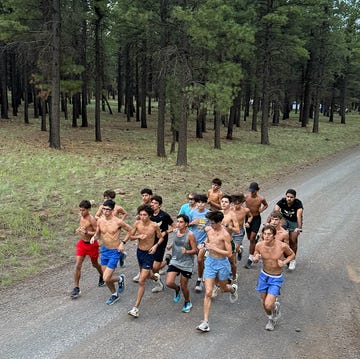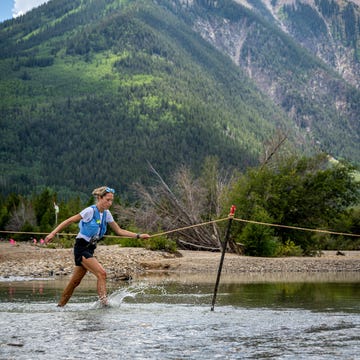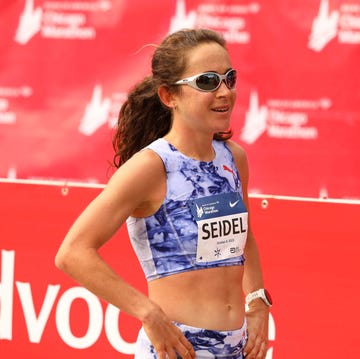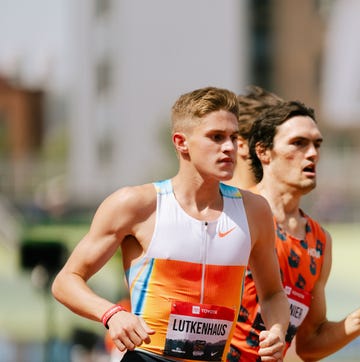James Corrigan had one final shot to go to the Olympics: run under the Olympic standard of 8:15 or forfeit his spot to Evan Jager.
At the Penn Relays Summer Showcase in Philadelphia on Saturday night, Corrigan ran 8:13.87 in the 3,000-meter steeplechase to clinch his spot on the Olympic team.
Clutch.
So how did we get here? The whole situation is admittedly confusing.
At the Olympic Trials last Sunday, Corrigan placed third in the 3,000-meter steeplechase, one spot ahead of Jager. In many events, the top three in each event qualify for the Olympics. But there’s a catch: an athlete has to either have achieved an Olympic qualifying mark or have a high enough world ranking, which is determined by placement and times at major meets.
Corrigan didn’t have either, so his Olympic hopes were in flux. Since he’s a college athlete at BYU, he mostly competed in collegiate competitions this year, which don’t offer many world ranking points. So Corrigan, 22, knew that to clinch his spot to Paris, the most sure-fire way would be to run under the 8:15 mark.
Since the qualifying window closes on Sunday, June 30, a section of the steeplechase was added to the Penn Relays Summer Showcase—essentially with the sole goal of allowing Corrigan a chance to run under the standard.
The last-minute race paid off.
Daniel Michalski served as Corrigan’s pacer through 2,000 meters, then Corrigan, who was being chased by Yasin Sado of Virginia, dug deep and closed the last lap in 1:03.47 to secure his ticket to Paris. Corrigan was just ninth in the steeplechase at the NCAA Championships in early June. He entered the season with a PB of 8:52—now he’s officially an Olympian.
The Team USA men’s steeplechase team will now be Corrgian; his former teammate at BYU, Kenneth Rooks; and Under Armour athlete Matt Wilkinson.
Theo Kahler is the news editor at Runner’s World. He’s a former all-conference collegiate runner at Winthrop University, and he received his master’s degree in liberal arts studies from Wake Forest University, where he was a member of one of the top distance-running teams in the NCAA. Kahler has reported on the ground at major events such as the Paris Olympics, U.S. Olympic Trials, New York City Marathon, and Boston Marathon. He’s run 14:20 in the 5K, 1:05:36 in the half marathon, and enjoys spotting tracks from the sky on airplanes. (Look for colorful ovals around football fields.)













